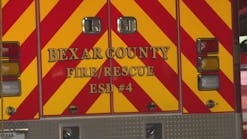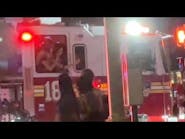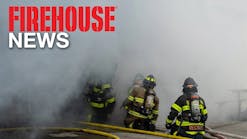New Orleans Firefighters Won't Work Some Overtime Shifts
By Ramon Antonio Vargas
Source The Times-Picayune | The New Orleans Advocate
New Orleans firefighters announced Monday they will no longer work voluntary overtime and other unscheduled hours beyond their regular shifts, escalating a fight with Mayor Latoya Cantrell’s administration over a host of labor issues.
The boycott on overtime for the most part won’t affect upcoming Carnival parades, all of which have a detachment of on-duty firefighters as part of the processions.
But, firefighters working voluntary overtime do help erect and take down barricades for parades. And, if the firefighters’ union and Cantrell’s administration can’t come to an understanding, there could be an impact to the city during other large events, from Carnival krewe balls to festivals with outdoor cooking.
Cantrell’s administration didn’t immediately respond to a request for comment on the boycott announcement Monday.
In a statement, union president Aaron Mischler said the boycott is necessary as firefighters seek relief from a call volume that has increased roughly 150-percent during the last decade while the New Orleans Fire Department has simultaneously shrunk 25 percent.
The union claims the Fire Department’s 480 or so rank-and-file firefighters constitute the lowest staffing level in the agency’s 128-year history.
To cope, many of the city’s roughly 480 firefighters have volunteered to work up to 96 hours a week — several hours longer than what is usually a 56- to 72-hour work week at the agency, said Doug Shanahan, a firefighter and union spokesman.
But Mischler said that is creating a physically and mentally taxing situation for firefighters.
Previously, City Hall officials have acknowledged that the Fire Department has fewer firefighters than it did in previous eras. But the city has also argued that there were more calls for service during those past eras and that the current staffing size is still safe for both the public as well as firefighters.
Additionally, according to Shanahan, firefighters currently don’t get paid their overtime rate until exceeding 212 hours on a 28-day cycle.
They want to be paid their overtime rate after exceeding 96 hours on a 14-day cycle, bringing them more in line with the New Orleans Police Department’s policy of paying officers their overtime rates beginning at 85 hours on a 14-day cycle.
Firefighters also say the rates they are paid for off-duty details lag behind those given to members of other first-response agencies in the city, and the union seeks an hourly increase of $5 across all ranks.
Other issues involve promotions and pensions.
Union officials argue that the city administration is still able to pick and choose who it can promote, as opposed to relying on a system primarily based on test scores.
According to the union, that is the case even after a December 2018 appellate court ruling found that 15 New Orleans firefighters had been unconstitutionally passed over for promotions to the rank of captain for what were essentially political reasons, despite civil service rules meant to prevent that scenario.
As for pensions, union officials want a uniform system. Currently, firefighters hired after 2015 must work 40 years to fully collect, while those hired earlier can begin collecting after 30 years. Doug Shanahan, a firefighter and union spokesman, said the city had promised to ask the legislature for permission to implement that system by this year but didn’t deliver.
“Young firefighters have no way to plan or prepare a career path and see no future with the NOFD,” read the statement issued Monday by Mischler.
In earlier labor disputes, including one roughly 20 years ago, firefighters have staged “sick outs” where they called out sick en masse, which can be costly to city coffers. For example, when about 75 percent of the NOFD called out sick one day in 1999, the city said it prevented a dangerous manpower shortage by requiring firefighters to work back-to-back tours of duty, costing the administration about $28,000 worth of overtime compensation.
Mischler said that Monday’s boycott is different because firefighters will continue to show up to work their regular shifts and will also be available to work mandatory overtime in the event of a serious emergency, such as a weather-related disaster.
“But, until the city agrees to address the issues that plague our once great organization, we can no longer work (voluntary) unscheduled hours beyond our regular shifts,” Mischler’s statement said.
Depending on how long the labor standoff drags out, the city could need to figure out a way to accommodate Jazz Fest and French Quarter in the spring.
Such events, which count on offering from food vendors cooking outdoors, are required by law to have firefighters on standby. So are New Orleans Pelicans games, which incorporate pyrotechnics for pre-game introductions.
Those standby firefighters typically are working voluntary off-duty details.
Yet, with firefighters declining to work off-duty details, the city would most likely need to pull on-duty firefighters from stations across the city, which would reduce the number of firefighters available to respond to emergencies in neighborhoods, Mischler said.
Union leaders and Cantrell’s administration met Friday in hopes of making progress on at least some of the firefighters’ grievances.
Mischler said that meeting resulted in virtually no headway, leading to Monday’s boycott.
———
©2020 The Times-Picayune | The New Orleans Advocate
Visit The Times-Picayune | The New Orleans Advocate at www.nola.com
Distributed by Tribune Content Agency, LLC.






